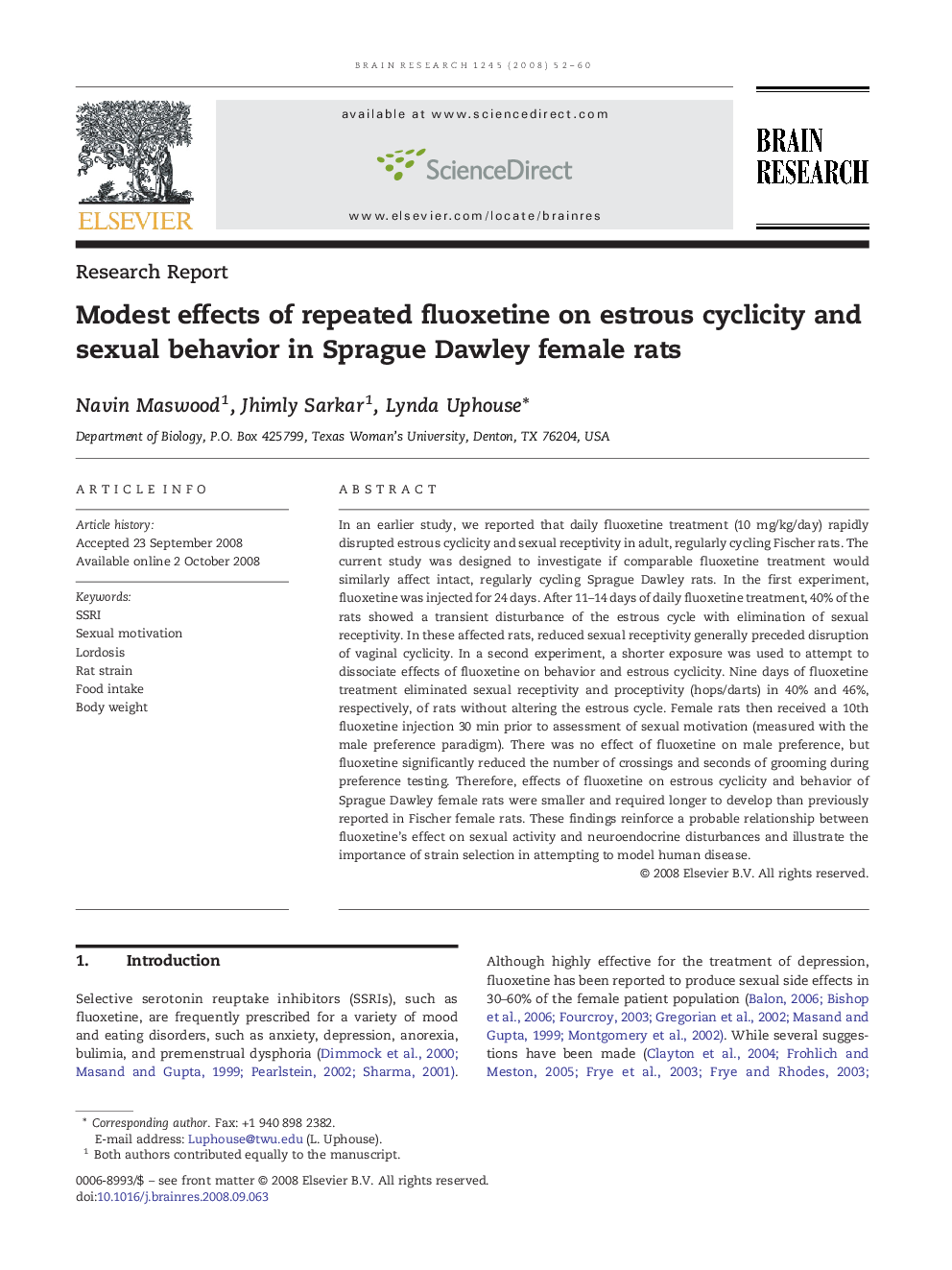| Article ID | Journal | Published Year | Pages | File Type |
|---|---|---|---|---|
| 4328865 | Brain Research | 2008 | 9 Pages |
Abstract
In an earlier study, we reported that daily fluoxetine treatment (10Â mg/kg/day) rapidly disrupted estrous cyclicity and sexual receptivity in adult, regularly cycling Fischer rats. The current study was designed to investigate if comparable fluoxetine treatment would similarly affect intact, regularly cycling Sprague Dawley rats. In the first experiment, fluoxetine was injected for 24 days. After 11-14 days of daily fluoxetine treatment, 40% of the rats showed a transient disturbance of the estrous cycle with elimination of sexual receptivity. In these affected rats, reduced sexual receptivity generally preceded disruption of vaginal cyclicity. In a second experiment, a shorter exposure was used to attempt to dissociate effects of fluoxetine on behavior and estrous cyclicity. Nine days of fluoxetine treatment eliminated sexual receptivity and proceptivity (hops/darts) in 40% and 46%, respectively, of rats without altering the estrous cycle. Female rats then received a 10th fluoxetine injection 30Â min prior to assessment of sexual motivation (measured with the male preference paradigm). There was no effect of fluoxetine on male preference, but fluoxetine significantly reduced the number of crossings and seconds of grooming during preference testing. Therefore, effects of fluoxetine on estrous cyclicity and behavior of Sprague Dawley female rats were smaller and required longer to develop than previously reported in Fischer female rats. These findings reinforce a probable relationship between fluoxetine's effect on sexual activity and neuroendocrine disturbances and illustrate the importance of strain selection in attempting to model human disease.
Related Topics
Life Sciences
Neuroscience
Neuroscience (General)
Authors
Navin Maswood, Jhimly Sarkar, Lynda Uphouse,
